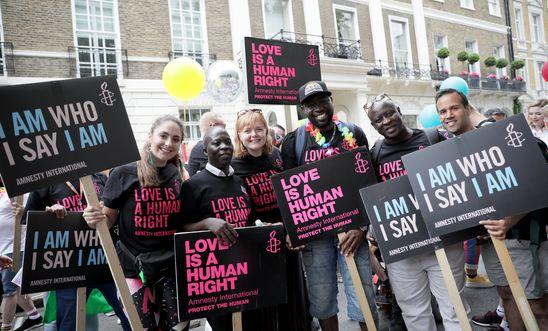
Press releases
UK: LGBTI ranking drop a 'depressing' reflection of how the Government treats rights of trans and non-binary people

Responding to news that the UK has dropped from 10th to 14th place in the annual International Lesbian, Gay, Bisexual, Trans and Intersex Association (ILGA)-Europe Rainbow Map and Index, Lydia Parker, Amnesty International UK’s Women’s Rights Director, said:
“Today’s publication of the annual ILGA-Europe Rainbow Map and Index is a depressing - but sadly unsurprising - indictment of the current treatment of trans and non-binary rights in the UK. To see the UK’s ranking drop so significantly is a stark reminder of the lack of equal protections afforded to this group.
“From the UK government’s failure to reform the Gender Recognition Act, to their recent exclusion of trans and non-binary people from the long-awaited ban on so-called 'conversion therapy' – trans and non-binary people have once again been left behind, with a Government that chooses not to uphold their human rights.
“Right now, the Government has an opportunity to do the right thing: They must ensure a draft bill includes trans and non-binary people - because a ban on conversion therapy that is not LGBTI+ inclusive is not a real ban on conversion therapy at all.”
Repressive and regressive
Rainbow Europe – ILGA-Europe’s annual benchmarking tool – comprises the Rainbow Map and Index and national recommendations. ILGA-Europe have produced the map and index since 2009, using it to illustrate the legal and policy situation of LGBTI people in Europe.
According to ILGA Europe, the UK has suffered a significant drop in ranking because the Government is not effectively protecting on the grounds of sexual orientation and gender identity.
This comes at a time of widespread political and media anti-trans sentiment, while the British government is not moving on long-promised reforms on gender recognition and banning so-called ‘conversion therapy’ for all.
Malta topped the list for being respectful and working to afford equal rights for all, with Denmark and Belgium coming in second and third respectively.
Bottom of the list were Russia, Armenia, Turkey and Azerbaijan.